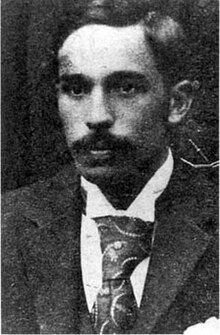Thomas Ellison
 |
|||||||||||||||||||||||||||||||||||||||||
| Date of birth | c. 1867 | ||||||||||||||||||||||||||||||||||||||||
|---|---|---|---|---|---|---|---|---|---|---|---|---|---|---|---|---|---|---|---|---|---|---|---|---|---|---|---|---|---|---|---|---|---|---|---|---|---|---|---|---|---|
| Place of birth | Otakou, New Zealand | ||||||||||||||||||||||||||||||||||||||||
| Date of death | 2 October 1904 | ||||||||||||||||||||||||||||||||||||||||
| Place of death | Wellington, New Zealand | ||||||||||||||||||||||||||||||||||||||||
| Weight | 86 kg (190 lb) | ||||||||||||||||||||||||||||||||||||||||
| School | Te Aute College | ||||||||||||||||||||||||||||||||||||||||
| Notable relative(s) |
Edward Pohau Ellison (brother) Raniera Ellison (nephew) John Howell (father-in-law) Edward Weller (grandfather) Te Matenga Taiaroa (great-grandfather) |
||||||||||||||||||||||||||||||||||||||||
| Spouse | Ethel May Howell | ||||||||||||||||||||||||||||||||||||||||
| Occupation(s) | Lawyer | ||||||||||||||||||||||||||||||||||||||||
| Rugby union career | |||||||||||||||||||||||||||||||||||||||||
|
|||||||||||||||||||||||||||||||||||||||||
| Position(s) | Forward and half-back | ||
|---|---|---|---|
| Amateur team(s) | |||
| Years | Team | Apps | (Points) |
| 1885–93 | Poneke Football Club | () | |
| Provincial / State sides | |||
| Years | Team | Apps | (Points) |
| 1885–92 | Wellington | 23 | () |
| National team(s) | |||
| Years | Team | Apps | (Points) |
| 1888–89 1893 |
New Zealand Natives New Zealand |
83 7 |
(113) (23) |
Thomas Rangiwahia Ellison, also known as Tom Ellison or Tamati Erihana (c. 1867 – 2 October 1904) was a New Zealand rugby union player and lawyer. He led the first New Zealand representative rugby team organised by the New Zealand Rugby Football Union (NZRFU) on their 1893 tour of Australia. Ellison also played in the 1888–89 New Zealand Native football team on their epic 107-match tour, scoring 113 points, and 43 tries with the side.
Born in Otakou, Otago Heads, Ellison was educated at Te Aute College, where he was introduced to rugby. After moving to Wellington, Ellison played for the Poneke Football Club, and was selected to play for Wellington province. He was recruited into Joe Warbrick's privately organised Native football team in 1888, and continued to play for both Poneke and Wellington on his return from that tour. In 1892, he started to refine and popularise the wing-forward system of play, which was a vital element of New Zealand rugby's success until 1932. At the first NZRFU annual general meeting in 1893, he proposed that the playing colours of the New Zealand side should be predominantly black with a silver fern—a playing strip that would give the team their famous name of All Blacks. He retired from playing rugby after captaining the 1893 New Zealand side to New South Wales and Queensland, but continued in the sport as a coach and administrator. Ellison was the author of a coaching manual, The Art of Rugby Football, published in 1902.
As well as being one of the first Māori admitted to the bar, practising as a solicitor, and later as a barrister, Ellison also stood unsuccessfully for the Southern Maori parliamentary seat several times. After contracting tuberculosis in 1904, he was briefly institutionalised before dying later that year.
...
Wikipedia
